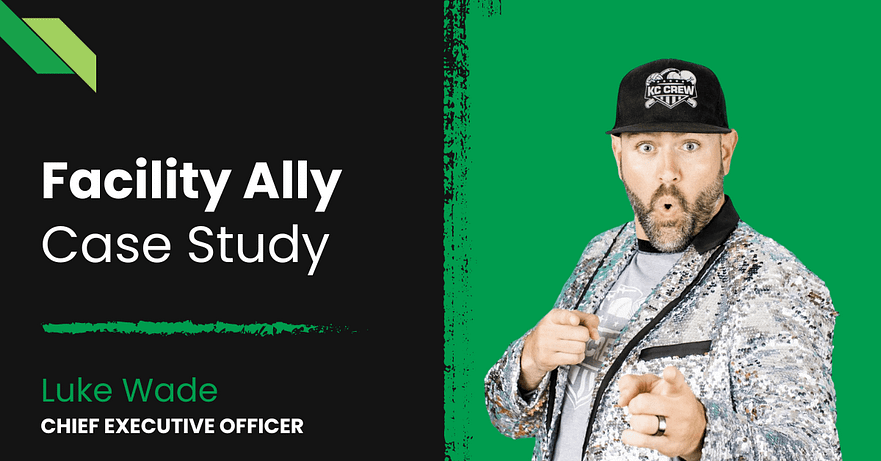.NET Interview Questions That Separate Real Developers From Framework Memorizers
Most companies ask .NET developers to recite framework trivia and explain garbage collection details. Then they hire someone who can’t architect a scalable application or debug production issues.
I’ve watched this disaster play out more times than I can count.
The .NET Interview Reality Check
Last year, we desperately needed a senior .NET developer for a critical API rewrite. Our existing system crashed under load, and we had three months to rebuild it.
I watched our team grill candidates on abstract base classes, dependency injection container internals, and memory management nuances. The winner knew every .NET framework detail by heart.
Two months in, our new hire delivered beautiful, textbook-perfect code that couldn’t handle more than 100 concurrent users. Meanwhile, our legacy system—written by a developer who probably couldn’t explain IDisposable—was serving millions of requests daily.
That’s when I realized: We were testing .NET knowledge, not .NET problem-solving ability.
The Hidden Cost of Wrong .NET Interview Questions
Here’s what happens when your .NET interview questions and process focus on framework trivia instead of practical skills.
Time Investment per .NET Hire
- 4-8 weeks screening candidates
- 60+ hours conducting technical interviews
- 20+ hours on coding assessments
- 15+ hours on architecture discussions
- Multiple weeks of discovering they can’t solve real problems
Financial Reality
- $20,000-$30,000 in recruiting costs for senior .NET roles
- 35% of .NET hires don’t meet performance expectations
- Lost development velocity while positions stay empty
- Existing team burnout covering critical .NET projects
The Real Damage
- Applications that work in demos but fail in production
- Performance bottlenecks that surface after deployment
- Architecture decisions that create technical debt
- Integration challenges that delay product launches
After all that investment, you might still end up with someone who knows the .NET framework inside out but can’t build software that works.
Why Traditional .NET Interview Questions Miss the Point
Most .NET interview questions test academic framework knowledge that doesn’t predict real-world development success.
What companies typically ask:
- Explain the difference between value types and reference types
- Describe the .NET garbage collection process
- Compare abstract classes versus interfaces
- Implement specific LINQ operations from memory
What .NET developers actually do:
- Build APIs that handle thousands of concurrent requests
- Debug production issues with incomplete information
- Integrate .NET applications with databases and external services
- Write maintainable code that teams can extend over time
- Optimize application performance under real-world conditions
The gap between .NET interview questions and job requirements explains why so many .NET hires struggle in production environments.
The .NET Skills That Actually Drive Success
After rebuilding our .NET interview process (and fixing that performance disaster), I identified what separates effective .NET developers from framework experts.
Critical .NET Competencies
- Performance Problem-Solving – Can they identify and fix bottlenecks in running applications?
- Production Debugging – How do they troubleshoot issues with limited access and information?
- Scalable Architecture – Can they design .NET solutions that grow with business needs?
- Integration Expertise – Do they understand connecting .NET apps to databases, APIs, and services?
- Code Maintainability – Can they write .NET code that teams can understand and extend?
These skills determine whether your .NET developer will ship applications that perform or create systems that break under pressure.
15 .NET Interview Questions That Reveal Real Skills
Performance and Troubleshooting Questions
1. Our .NET API response time jumped from 200ms to 3 seconds after adding user authentication. Walk me through your debugging approach.
What to look for: Systematic performance analysis, knowledge of profiling tools, understanding of common authentication bottlenecks.
2. A customer reports that our .NET application becomes unresponsive during peak hours. How do you investigate this issue?
What to look for: Load testing knowledge, monitoring strategy, understanding of concurrency issues, and resource management.
3. Explain how you’d optimize a .NET application that’s using 90% of server memory.
What to look for: Memory profiling skills, understanding of garbage collection impact, and knowledge of memory leak patterns.
Architecture and Design Questions
4. Design a .NET solution for processing 10,000 file uploads daily, with email notifications and error handling.
What to look for: Scalable architecture thinking, understanding of background processing, error handling strategy, and separation of concerns.
5. How would you structure a .NET application that needs to integrate with five different external APIs?
What to look for: Integration patterns, fault tolerance, configuration management, testing strategies for external dependencies.
6. Walk me through architecting a .NET microservice that handles user authentication for multiple applications.
What to look for: Security best practices, scalability considerations, inter-service communication, and data consistency approaches.
Real-World Problem Solving Questions
7. A .NET application works perfectly in development but throws random exceptions in production. Describe your investigation process.
What to look for: Environment difference awareness, logging strategies, systematic debugging approach, production troubleshooting skills.
8. How would you migrate a legacy .NET Framework application to .NET Core without breaking existing functionality?
What to look for: Migration planning, compatibility assessment, testing strategies, and risk management approach.
9. Explain your approach to implementing caching in a .NET application that serves both web and mobile clients.
What to look for: Caching strategies, invalidation approaches, performance considerations, and client-specific optimization.
Database and Integration Questions
10. Our .NET application’s database queries are timing out during busy periods. How do you solve this?
What to look for: Database optimization knowledge, Entity Framework performance tuning, connection management, and query analysis skills.
11. Describe how you’d implement real-time notifications in a .NET application for 50,000+ concurrent users.
What to look for: SignalR knowledge, scalability planning, connection management, fallback strategies.
12. How would you handle data synchronization between a .NET application and a third-party system with unreliable connectivity?
What to look for: Resilience patterns, retry strategies, data consistency approaches, and error recovery mechanisms.
Code Quality and Maintenance Questions
13. Show me how you’d structure unit tests for a .NET controller that depends on multiple external services.
What to look for: Testing strategies, mocking approaches, dependency injection understanding, test organization principles.
14. Explain how you’d refactor a 500-line .NET method without breaking existing functionality.
What to look for: Refactoring strategies, testing approaches, risk mitigation, and code organization principles.
15. A team member’s .NET code works but is difficult to understand and modify. How do you provide guidance?
What to look for: Code review skills, mentoring ability, communication approach, and focus on maintainability over perfection.
How to Structure Your .NET Developer Interview Process
- Round 1: Problem-Solving Discussion (45 minutes). Present a real .NET challenge from your codebase. Focus on their thought process, not perfect solutions.
- Round 2: Architecture Review (60 minutes). Have them design a .NET system for a business scenario similar to your domain. Assess scalability thinking.
- Round 3: Code Analysis (30 minutes). Show them the problematic .NET code from your system. Evaluate their debugging and improvement approach.
- Round 4: Technical Deep-Dive (45 minutes). Use the questions above to understand their practical .NET experience and problem-solving methodology.
Red Flags in .NET Developer Interviews
- Only discusses framework features, never mentions business impact
- Can’t explain how they’d debug production issues
- Focuses on perfect code architecture instead of working solutions
- Shows no curiosity about performance or scalability requirements
- Can’t describe real .NET projects they’ve worked on
- Gives textbook answers without practical context
The .NET Interview Questions You Should Stop Asking
These traditional questions don’t predict .NET development success:
- Recite the differences between .NET Framework versions
- Explain garbage collection algorithms in detail
- Implement design patterns from memory
- Compare C# language features without context
- Describe CLR internals that developers rarely interact with
Focus on problem-solving ability, not framework memorization.
What Strong .NET Developer Answers Sound Like
Strong response example: “I’d start by checking application metrics to confirm the performance regression coincides with the authentication change. Then I’d use a profiler like dotMemory or PerfView to identify bottlenecks. Common issues include inefficient database queries for user lookups, excessive API calls for role validation, or blocking synchronous calls. I’d also check if we’re properly caching authentication tokens and whether concurrent user sessions are causing resource contention.”
Weak response example: “I’d look at the authentication code and make sure it’s optimized. Maybe add some caching or use async/await properly. The garbage collector might be causing issues, too.”
The strong answer shows systematic problem-solving, tool knowledge, and understanding of common performance patterns. The weak answer offers generic suggestions without demonstrating real debugging experience.
Building Your .NET Interview Question Bank
Customize questions based on your technology stack and business domain.
For Web API Applications
- How would you handle API versioning in a .NET application with mobile clients?
- Describe implementing rate limiting for a .NET Web API.
For Enterprise Applications
- Walk me through integrating a .NET application with Active Directory.
- How would you implement audit logging for compliance requirements?
For High-Performance Systems
- Explain optimizing a .NET application for financial trading systems.
- Describe handling real-time data processing with .NET.
Why This .NET Interview Approach Works
When you focus on practical .NET interview questions, you’ll identify candidates who:
- Solve real business problems with .NET technology
- Debug production issues effectively under pressure
- Write maintainable code that scales with your application
- Understand the performance implications of their architectural decisions
- Collaborate effectively with teams on complex .NET projects
The Reality About .NET Hiring
Here’s the truth: You need .NET developers who can build applications that work in production, handle real user loads, and integrate with your existing systems. And you need them fast!
But do you really want to spend the next five months perfecting your .NET interview process?
Skip the .NET Interview Gauntlet
Traditional .NET hiring process:
- 4-8 weeks of candidate screening
- $25K+ in recruiting and interview costs
- 35% chance the hire can’t solve real problems
- Weeks of onboarding and discovering skill gaps
- Hope they understand your business context
Full Scale’s .NET staff augmentation:
- 2 weeks to get experienced .NET developers
- Developers are already vetted for practical problem-solving
- 95%+ retention rate with proven track record
- No onboarding overhead or training delays
- Direct integration into your existing development workflow
We’ve already done the hard work of identifying .NET developers who can architect scalable solutions, debug production issues, and write maintainable code. Not because they memorized framework documentation, but because they’ve built .NET applications that perform under real-world conditions.
Instead of testing theoretical .NET knowledge, we evaluate practical development skills. Instead of hoping new hires can solve problems, we provide developers who’ve already proven they can build .NET solutions that scale.
Our staff augmentation model connects you with experienced .NET developers who understand what actually matters: building applications that work in production and drive business results.
No resume screening marathons. No framework trivia contests. No onboarding delays. Just skilled .NET developers ready to contribute to your projects from day one.



